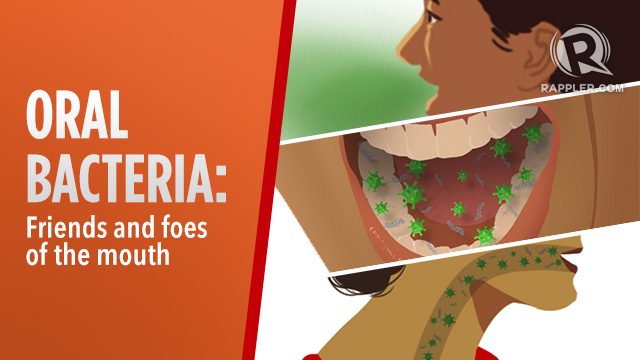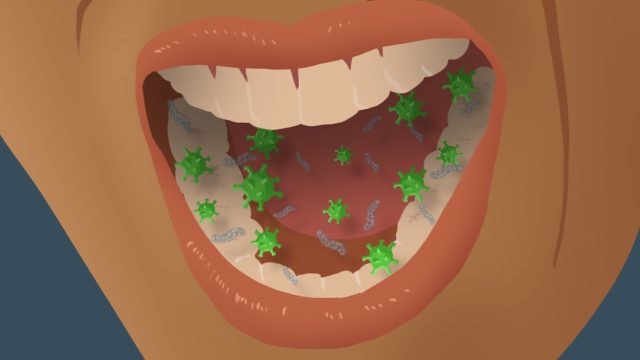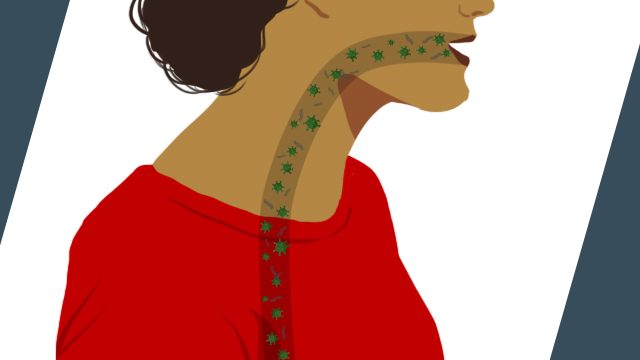SUMMARY
This is AI generated summarization, which may have errors. For context, always refer to the full article.

MANILA, Philippines — Whether you like it or not, your mouth is a breeding ground for microorganisms. Each section of the mouth is covered in its own set of microscopic critters; the microbes on the tongue differ from those on the roof the mouth, and those within the biofilms that coat the teeth and gums are different from those that take residence in other parts of the oral cavity. In fact, several hundred different strains of bacteria have been detected to thrive in the human mouth. But of course, only around 34 to 72 actually put up tent in a single person’s mouth at a time. Still, that’s a lot of bacteria, if you think about it.
While this might be shocking news to those who brush, floss, and even rinse with mouthwash regularly, there’s no need to lose your cool just yet: Not all bacteria are bad bacteria. An example would be S. Sanguinis, a normal resident of a healthy mouth. It resides in plaque but also suppresses bacteria that cause cavities. Others, known as probiotics, aid in digestion. A common probiotic is S. Salivarius, which helps maintain healthy gums and teeth. And others still, seem to be completely harmless and do nothing at all.
Unfortunately, where there is good (and neutral) there is also bad, and it manifests itself in different ways. Sometimes, the first red flag that announces the presence of bad bacteria is bad breath.

Stinky exhales
When bad breath rears its ugly head, you have bacteria to thank for that. Bad breath is normally caused by a buildup of anaerobic (or gram-negative) bacteria in your mouth, which can cause inflammation and putrid, noxious odors or gases that somewhat smell like sulfur (if you’re lucky). While everyone has bacteria in their mouths, they’re actually not the ones to blame for the unpleasant smell. It’s the odorous secretion that anaerobic bacteria make. So the denser the volume of anaerobic bacteria there is in your mouth, the stinkier the breath.
It might not sound like a big deal, but if you want to know why this matters more than you think, you can read more about how something as small as bad breath can affect the rest of your life here.
Bad breath is just scratching the surface. When bacteria gets out of hand or you start culturing different, unwelcome strains of microorganisms, you could be suffering from more than just bad breath. Two of the most common harmful bacteria are streptococcus mutans and prophyromonas gingivalis.

Unwanted tenants
The first one, streptococcus mutans is the bacteria that feeds on the sugar and starches that you ingest, and as a by-product, produce enamel-eroding acids that pick at your pearly whites. That’s why when you give into your sweet tooth too often, the other teeth aren’t so happy. You’re basically setting yourself up for tooth decay. Thanks a lot, streptococcus mutans.
The second most common bacteria, prophyromonas gingivialis, which, —you guessed it! —is strongly linked to periodontitis. It attacks the tissues of your mouth and the alveolar bone that supports the teeth. If left untreated, it might affect your perfect smile through (1) chronic pain and discomfort, which can only lead to a grimace, and (2) tooth loss.

Just passing through
With the vast number of bacteria and the numerous variables that have to do with the mouth such as diet and oral habits, the relationship between bacteria and other health concerns are still up for research. While some bacteria take permanent residence in the mouth, others are just passing through. But it might be important to note that since these bacteria reside in the mouth, there’s a chance they could slide back down the throat and make their way to the rest of your body.
The only thing that can be said for sure is that a healthy diet, regular brushing, and good oral practices can help manage the bacteria in your mouth. You can always use toothpastes that help protect your mouth from bacteria buildup, guarding against the unwanted tenants and preventing bad breath and worse. This can keep you from housing a mouthful.— Rappler.com
Add a comment
How does this make you feel?

There are no comments yet. Add your comment to start the conversation.